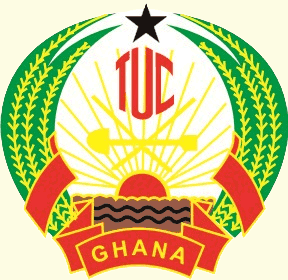Engage social partners on tax exemption bill – TUC
 The Trade Union Congress, Ghana has called for broader consultations especially with social partners on the tax exemption bill before laying it in Parliament in 2020.
The Trade Union Congress, Ghana has called for broader consultations especially with social partners on the tax exemption bill before laying it in Parliament in 2020.
The Union is of the view that, the country’s tax exemption regime benefits only few entities including the multinational companies, adding that majority of these exemptions have lost their economic basis.
Government in April 2019 announced that the exemption bill has been laid before Parliament for passage to streamline tax exemption and minimize its abuse.
However, the International Monetary Fund supported government to overhaul its tax exemption regime to boost its falling domestic revenue.
Mrs Mary Karimu, the Deputy Director, Labour Research and Policy Institute, TUC, said this in Accra at a stakeholder’s forum to review the 2020 budget statement and supported by the Friedrich Ebert Stiftung Foundation.
She said that total revenues for the country underperformed by more than 15 per cent in the first quarter of 2019, stressing that tax-to-Gross Domestic Product ratio was below that of other countries in the sub-saharan Africa including Togo with 22.2 per cent and Senegal of 22 per cent.
Mrs Karimu commended government for the extension of tax stamp to curb smuggling in the system and the introduction of zero-rating Value Added Tax on sales of locally made textiles.
This, she said, would enhance disposable income for workers and their families and as well improve living standards of the citizenry.
Touching on the pension scheme for workers, she urged government to continue to work with the Unions to prevent any possible unrest.
From January 2020, the new pension scheme will take effect, where pensioners will get part of their lump sum payments from their second-tier contributions.
Mrs Karimu said there is bound to be challenges in the transition process because pensioners are not likely to receive any substantial lump-sum payment compared to what pertains under the Social Security and National Insurance Trust.
Focusing on trade policy, TUC commended government for urging Bank of Ghana to ensure a reduction in the lending rate of 25 per cent in 2020 as part of the ongoing reforms in the financial sector.
She said there is the need to change the country’s trade policy to support domestic businesses and production.
Mrs Karimu said domestic businesses including those established under one district one factory are facing stiffer competition from foreign firms.
“Competition is good only to the extent that it is among firms of equal strength and operating in similar economic environments, otherwise competition becomes unfair”, she added.
On the energy sector, the Union lauded government for terminating the lease agreement on the PDS concession, urging them to initiate a broader consultation before awarding further contracts to forestall job losses and minimize labour agitation.
She called for the re-establishment of public agreements review committee to complement the oversight efforts of Parliament and also institute open public contract approach that allowed civil society to scrutinize public agreements.
Mrs Karimu said even though government has made a significant progress in the last three years, the Union expects government to consolidate the gains for growth, jobs and prosperity for all in 2020.
Mr Fritz Kopsieker, the Resident Director of Friedrich Ebert Stiftung, called for effective synergies between government and the citizens on national economic policies.
He said the role of TUC is crucial in informing government about their concerns to be factored in national policies.
Some of the participants urged government to extend the implementation of the tier two pension scheme because they believed not much returns has been made on the investment.
The participants commended government for encouraging Ghanaians to patronise local goods urging them to ‘walk the talk’ by buying the products themselves.
They urged government to seek for wider consultations on national policies before implementation to avoid any further agitation from the public.
Source: GNA
